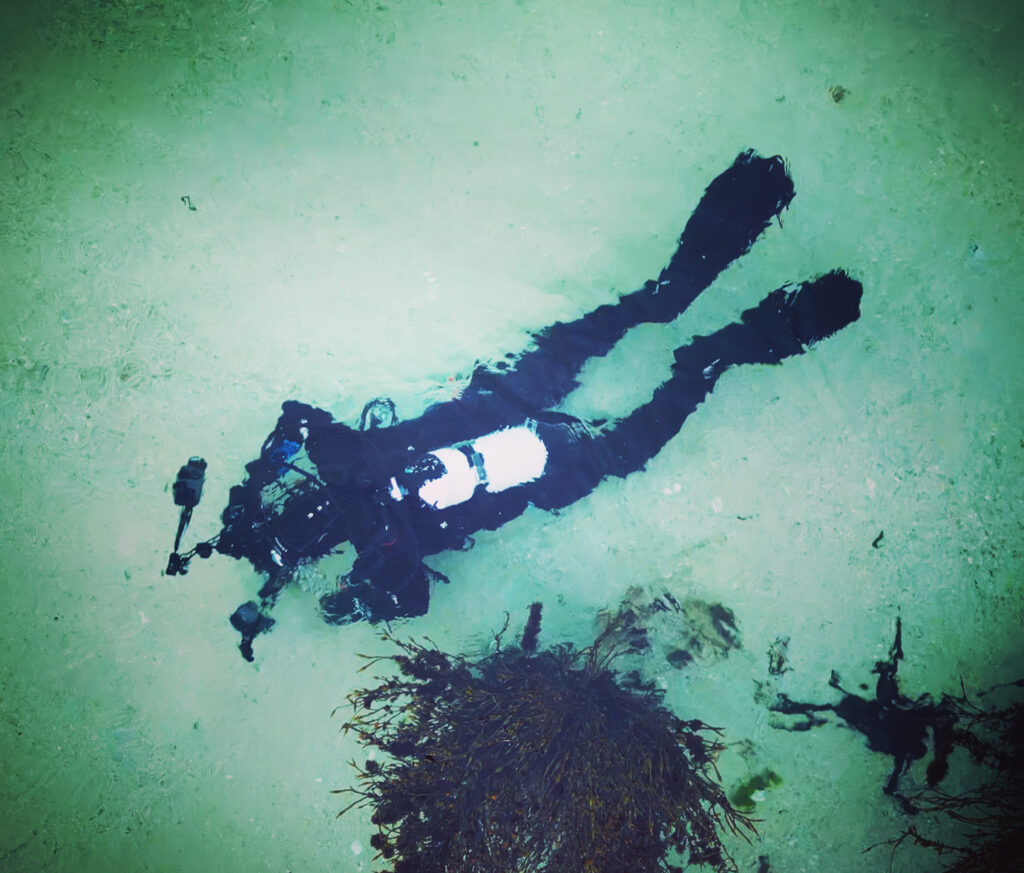A friend recently commented on one of my student’s films. He thought it was brilliant, but asked “what did the student do?”. This was because the student appeared throughout the film, so it looked liked I had made the film for him. I was really taken aback and the comment stayed with me all evening. It made me realise that perhaps, for some, the definition of filmmaker differs.
Wild Island Film School recently celebrated its 5th year, which is quite something considering it was never my plan to run a film school. I initially helped out a friend, enjoyed it and it slowly evolved. It’s still evolving and with every student, it becomes more meaningful, more personal and more rewarding. The title ’School’ has always felt a bit grandiose. After all, it’s one-to-one mentoring based at my home on Mull. The classroom desk is the dining room table, with homemade cake and hot coffee. Once out in the field, we’re in my Land Rover, where there’s also hot drinks and snacks. It’s all very civilised and relaxed.
But don’t let that cosiness fool you. Students are pushed mentally and encouraged creatively to find their story. The whole process starts weeks before they arrive on the island. I’m just as unsure of the term student because that implies I’m the teacher and I don’t see myself that way. Sure, I can impart my experience but I see myself more of a facilitator and ultimately take the role of producer – but also runner, camera op, spotter, researcher and editor and of course, cake baker. Effectively, we become a crew.
The process starts around 3 weeks in advance of the practical course, via email exchanges. At this point we are strangers and it’s my job to read between the lines and ask questions so as to encourage deeper thinking. Some already have a strong sense of their concept and some find writing a storyboard and a shot list far easier than others. Some work at it a lot harder and grasp that the more effort that is put in at the concept stage, the easier the filming stages often are – and this usually makes for a stronger story and better film overall.
But lately I’ve become more aware of the shift in the way I am working with students and I have just changed my Instagram bio from Wildlife Filmmaking Course to Filmmaking Courses based in Nature. A subtle, but important difference. For me, the strongest stories are where humans see themselves as nature. Where they are willing to put themselves right in the heart and to see themselves as part of the natural world.
By their own admission, many students that come my way state they are ‘clip takers’. They explain how they take lots of footage but never know what to do with it. They see, point, shoot and at best will put some footage together on a timeline. Often beautiful but is that filmmaking? Is that storytelling? These same students will all claim for them, it’s not filmmaking and that’s why they’ve come to me – to learn how to tell a story.

Over my professional career I’ve predominately worked on commercial shoots. From interviews to documentaries to advertising. From low budget to high-end productions. I’ve never been interested in television but naturally, some of my work takes me there. In all cases, I’ve been hired for my creativity and my ability to turn a concept inside out and deliver. I’ve always had the ability to visualise a story before it’s told. To imagine that world and to find ways to communicate such tales.
So back to my main point and the friend’s comment. For every shot the student was in, he wrote it, he framed it, developed and debated it. I’d jump in as stunt double. Of course he did that under my guidance and influence, but that’s the whole point, he was here to develop that way of thinking. We recced the locations, made decisions on what worked best and changed minds last minute if it wasn’t working. Flexibility is vital and he remained open to on-the-fly opportunities that would help enhance his story. We ducked and dived around the weather and the inconsistencies that can throw up. You don’t have that same mindset when you’re just out capturing shots, because you don’t know what your story is – there isn’t one. In just a few days, that student used phrases like ‘I’m thinking like a filmmaker’ ‘I’m answering questions before they get asked’ ‘I’m thinking on a far deeper level than I usually would’.
A filmmaker takes an idea and turns it into a story. For me, that’s the definition of filmmaker. It’s not about camera skills or the ability to shoot beautiful footage, that’s a camera operators job (the student can also take that role too, of course). A filmmaker is a creative soul that burns to tell a story. It’s a way to express, to inform, engage and inspire. So to answer my friend, that’s absolutely what the student did. He made a film. The film in question is Plumose by Robert Dennet-Thorpe, go take a look.

